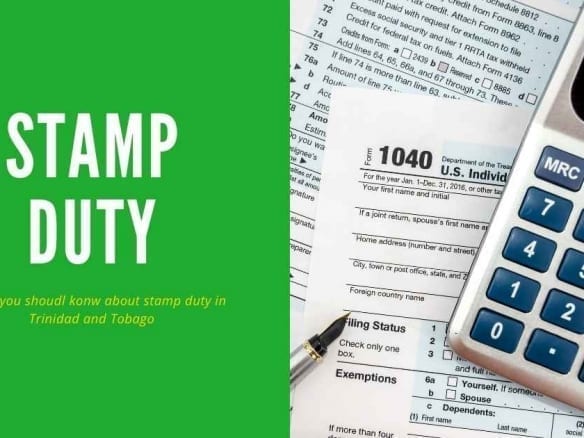Table of Contents
Step #1: How much will your bank Lend you to Purchase a home?
Getting Prequalified
So, the first step to purchasing any home is finding out what you can actually afford. Most people think they can afford a house in a certain range but are surprised to learn that the bank would not lend them that much, and only qualify for a lower loan amount. Unless you have this money saved up, then you have to rely on your bank or an institution like TTMF to tell you what your actual qualification range is.
Moste notably, you are not confided to the bank that you do business with. Infact you should shop around for the best mortgage rate. When shopping around for mortgage rates, there are three main factors that you financial institution will take into consideration when qualifying you for a Mortgage. These are your Age, Income and Level of Debt.After Prequalification
Once you are pre-qualified to purchase a home, you will know how much your financial institution is able to lend you. However, after prequalification, if you get a low figure (less than one million dollars,) then you may be able to qualify for more by getting a spouse or family member to take this mortgage with you, increasing your income and/or reducing your level of debt.
If you have a history of bad payments (e.g. Utility bills) this information is stored by a company called Trans Union, where your financial information is stored. Your information is used from this company to calculate how much you can borrow or what your mortgage rate may be.
From these calculations, your bank will also determine your Credit Score. Determining your credit score is a major step when you have to purchase a home. Banks demand this before making any mortgage products available for customers as it indicates their repayment behavior. Financial institutions and private lenders have to know that you have a history of re-paying your debts before they can trust you with a mortgage.
Step #2: Getting a Qualified Real Estate Agent to Help you Purchase a Home.
There is a lot of legal, business and financial jargon to deal with when making property deals that only a trained expert would understand. You stand a better chance when working with agents that have years of experience. Additionally, the best real estate agents also have unlimited access to viable properties that could suit you hence saving time that could have been looking for available property. What to look for when looking for a real estate agent?Choosing the Right Real Estate Agent:
- Has Years of Experience
- FIU Registered
- Qualified- has a Certificate in Real Estate Sales
- Will look for real estate listings that will match your budget.
- Has a strong online presence
- Works Well with other Real Estate Agents
Step #3 How to Budget when you have to Purchase a Home
Budgeting is the most important factor to consider before buying any kind of property. Take the time to consider how you will afford to pay monthly bearing in mind the fact that most banks generally require 35% of your monthly income.Budgeting With an Example:
Let’s Make the following Assumptions-- You have a joint mortgage with your spouse, and you were given 30 years to pay it off.
- You have a retirement age of 60 years, and you and your spouse are 30 years.
- You and your Spouse have a joint income of $20,000 TTD
- You have a healthy repayment history for your current and previous debts and a good credit score that is in line with the Banks policy. (A credit score is a statistical number that evaluates a consumer’s credit worthiness and is based on a credit history. Lenders use this credit score to evaluate the probability that in Indvidual will repay his or her debts.
Mortgage Calculation
- Your Mortgage calculation would look something like this:
- Your Age 29 Years
- Your Spouse’s Age 29 Years
- Mortgage Term 30 Years
- Joint Income 20,000 TTD
- Existing Loans 1 2,000 TTD / Per Month
- Existing Loan 2 1500 TTD / Per month
- Current Debt Service Ratio (total Expenses / Joint Salary *100 ) 3500/20000 *100 = 17.5%
- Total DSR (40%) 8000 TTD
- Mortgage DSR (35%) 7000 TTD
- Mortgage Payment Cannot exceed 40% 4500 TTD
- Mortgage Payment Cannot exceed 35% 3500 TTD
- The couple is in good position due to their age to be able to get a full 30 years of the mortgage term. Another older couple on the same salary will have a shorter timeline within which to repay the loan so monthly payments will be higher.
- Because the couple is young and at a relatively early stage in their career, there is the possibility of further salary increase or gratuity payments which would positively impact their DSR and open other possibilities from a real estate perspective for them.
Interest Rates
The interest rate on a loan is a very important factor for most individuals as this and the term of the loan dictates the monthly payment that would be required. The interest rate would be included in the borrower’s letter of Offer from the Financial institutions and in the local market of Trinidad and Tobago, most interest on mortgages are variable meaning that the rate can go up or down. Ff the rate goes up, the payment is automatically increased. If the rate goes down, the borrower has the option to reduce the payments or maintain the same payment and repay the loan faster. According to the Central Bank’s Ninimum Requirements of the Residential Mortgage Market Disclosure Statement published in 2017, the interest rate must be disclosed. In Keeping with Central Bank Guidelines lenders required to disclose the reference rates as well. This reference rate is an interest rate benchmark against which mortgages are prices or re-priced.Step#4: Selecting a Property
It is obviously time to take your pick of available property but not before considering the following:- Distance of property from work and school
- Price range
- Is it in a safe neighborhood for children
- Who are the main residents in the area?
- Are utilities available?
Opting to Purchase Land
Land loans are usually granted for a term of 5 years with the intention that the borrower will require a bridging loan for the construction phase of their property. Bridging loans are also used by homeowners who require the funds to complete major renovations of their property. This loan provides interest-only payments based on the amount drawn for the construction period. Interest rates for bridging loans are usually higher than on the long term mortgage since it is a short term facility and there is a higher risk during the construction phase. With bridging loans, construction must be in accordance with an approved building plan. If a homeowner wishes to convert a bridging loan into a long term loan, a valuation as well as a completion certificate will be required by the lending facility.Documents needed for Residential property purchase
Once John and Mary have decided what to purchase as 1st-time homeowners the basic requirements are as follows: 1. Title Deed for the property to be mortgaged (Banks need to see that the said property holds good title) 2. A Certificate of Completion 3. (This applies for new developments and houses built under 4 years old) 4. An original Valuation Report – which is an assessment of the property’s value, based on the location, condition and multiple other factors. 5. (Banks will accept a valuation that is no older than six months from a member of the bank’s panel) 6. Land & Building tax receipt (2009) or BIR Certificate of payment, WASA Clearance Certificate, and WASA bill and receipt (for the current quarter), (Lease rent Receipt and Maintenance charges if APPLICABLE) 7. Detail of existing loansStep#5: Making an Offer
Making an offer
Before making an offer on any property, ask your real estate agent whether the property has approval for mortgages from banks. It is ideal to contact your mortgage provider beforehand to ensure that they cover the property you want. Once issues are straightened out you get to sign some legal papers and make the initial down payment.Things that you should do
At this point in time it is wise to:- Have your lawyer checkout the papers before putting your signature on them
- Ensure that there is enough time to close the deal and obtain your mortgage. This should ideally be one month before the bank closes the mortgage.
- Make sure that your real estate agent is in a position to provide all documents needed by your lender before making any deposit.
- Carry out a property inspection to ensure that the property you intend to buy is in perfect shape.
- Sign the papers and make the deposit before moving into your new home or office building.
Pay Attention to the following:
Before your mortgage institution can process your mortgage, you will need to present two important documents:- Value appraisal – The bank needs to see the value of the property as determined by a recognized valuator in Trinidad. This prevents incidences where a property is bought for a higher value that what it is appraised for.
- Title – The mortgage institution demands a title search on all property before approving them to ensure that they are not entangled in lawsuits or engaged in another deal that would compromise the mortgage. This is the main reason why you must ask your preferred real estate agent for a clear mortgage deal.
- Planning and building documents – This is not always the case but most lenders often demand to see these documents as a way of telling whether they should offer you a loan.





Join The Discussion